
In past lives, Dean Anderson has been a social worker, small business owner, college psychology and philosophy instructor, and world-class couch potato who weighed close to 400 pounds, smoked three packs and drank two six-packs of beer per day, and considered chocolate-peanut butter fudge a well-balanced meal. In this life, Dean earned a personal training certification from ACE, received training as a lifestyle and weight management consultant, and began working for SparkPeople. He writes about attitude adjustment, motivation, men's health, and senior fitness. When not sitting in front of his computer, he can usually be found hiking or biking (he's the bald guy that everyone else is passing).
Read More of 's Blogs:

Mixing Alcohol and Energy Drinks NOT a Good Idea...
It’s Friday night, you’re tired after a long, hard week, but you really want to go out with your friends and do a little partying. The solution: mix your alcohol with an “energy” drink like Red Bull or Monster. It’s the new way to have your alcohol but stay awake and party all night, too.
Not a good idea, according to 11 State Attorneys General, including California Attorney General Jerry Brown, who recently announced an agreement with Anheuser-Busch Inc. that requires the company to discontinue production of all alcoholic energy drinks (AEDs), including its two current brands -- Tilt and Bud Extra. Similar negotiations are going on with Miller Brewing Company.
Posted 10/28/2008 4:56:48 PM By: : 88 comments 103,222 views

How Healthy are the Presidential Candidates?
According to this recent article in the New York Times, all four of the major candidates for President and Vice-President in this year’s election have released much less information about their current and past health issues to the public than “normal.”
And, as you can see from glancing through the article, it looks like all of the candidates have some issues that any voter who wants to cast a well-informed vote would probably like to know a little more about.
Posted 10/23/2008 12:12:41 PM By: : 63 comments 11,073 views

Energy Bars: The Good, The Bad & The Ugly
Looking for some fast fuel before or after your exercise, or a quick and easy treat that’s more nutritious than a candy bar or a 100-calorie pack of cookies? If so, energy bars may be a practical option for you. They’re convenient, easy to carry around, about the right size for a snack or even a meal replacement, and can be a good source of many nutrients.
But these days there are so many options to choose from, with such a wide range of nutritional quality, that it can be pretty confusing to pick one that’s right for you. And the marketing claims made by many of these items don’t make it any easier to tell the good ones from the candy bars with a few added vitamins. All calories provide “energy,” so literally anything can be called an “energy bar.”
What kind of bar you should choose depends a lot on what you want it to do for you. Here’s a handy way of putting energy bars into functional categories according to your specific needs, along with some nutrition info you can use to compare different brands…
Posted 10/21/2008 5:55:50 PM By: : 110 comments 62,365 views

STEP AWAY FROM THAT PLATE! World Foodless Day, 2008
Thursday, October 16, is officially World Food Day. But many people in countries around the world are celebrating it as World Foodless Day, to call attention to the growing threats to development and even basic survival many people face as food prices rise and availability falls.
They are asking all of us to join them in a day of fasting (unless, of course, you have a medical reason not to skip meals). You can donate the food money you save to your local food bank or to an organization like Oxfam.
Although the food crisis is less visible in more affluent communities, it exists everywhere. Most of us have felt the pinch of rising food prices. And here in the United States, many social programs (like your local food bank) that help people in need of emergency food supplies are running short of supplies and dollars just as their busiest time of year approaches.
There are many “large scale” problems that contribute to worldwide food shortages and rising prices, including everything from financial crises, water issues, and increased use of crops for biofuel to persistent problems with poverty, inequality, and misdirection of resources.
But our own daily habits and choices also play a significant role, both in the problem and in the solution. Read on to find out more…
Posted 10/16/2008 4:00:00 AM By: : 50 comments 9,944 views

Getting tired of all the political rhetoric? Join this challenge to make political season work for you!
I hate October--at least during the even number years, when this is the month that political campaigns shift into overdrive . This year, the race for President seems to be setting new records when it comes to generating a lot of negative campaigning, character assassination, and name calling--just when what we really need more than ever is some serious thinking and honest debate about the problems we're facing. It's just plain ugly and depressing.
For many people, this is also the hardest time of the year when it comes to sticking to your healthy eating and exercise plans. Swimsuit season (and whatever extra motivation that gives you) is over, the weather is getting less user-friendly for outdoor activities, and the holidays (with all the stress, temptations and challenges they bring) are almost upon us.
I've found my own motivation for healthy eating slipping a little bit lately, along with my mood, so I've been looking for a way to keep my head in the game. Here's a challenge I've come up with. Maybe it'll help you, too.
Posted 10/14/2008 4:09:32 PM By: : 33 comments 6,868 views

Edible Food-Like Substances: Friend, Foe, or Necessary Evil?
I love the term “edible food-like substances,” which comes from Michael Pollan’s latest book, In Defense of Food: An Eater’s Manifesto. He uses the term to refer to everything from frozen, microwavable meals to protein bars, frozen veggie burgers, and vitamin-enriched cereals.
Just calling these highly processed, manufactured items “edible food-like substances” makes you stop and wonder: Are these things really food? Should I be eating them?
Pollan, as you can probably guess, thinks you shouldn’t. The “food” he wants to defend is natural, minimally processed food that comes to you in its natural state, or as close as possible. But, as with everything, there are pros and cons on both sides of this issue. Read on, and see whether you agree with Pollan, or think he’s being too impractical.
Posted 10/9/2008 12:27:41 PM By: : 101 comments 16,811 views
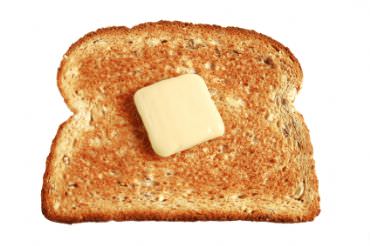
What if Everything You Think You Know About Losing Weight is Wrong?
If you’re someone who’s watching what you eat for weight loss or better health, you probably believe that obesity is caused by eating more calories than you expend each day. And that keeping fat intake—especially saturated fat—relatively low and carbohydrates pretty high is the best way to reduce calories and protect your heart health at the same time.
You’re probably also under the impression that both of these assumptions have been “proven” by tons of scientific research over the last 50 years or so. After all, that’s why the government and most professional medical organizations recommend reduced calorie, low-fat diets for weight loss.
Well, you (and the experts) could be wrong…
Posted 10/7/2008 3:56:48 PM By: : 119 comments 19,562 views

The F-Word. Is it still something nice people shouldn’t say?
Not too long ago, I used to dread going to the supermarket or any place where the chance of running into young children was pretty high. Almost inevitably, one of them would point at me and say something like: “Mommy, why is that man so fat?”
It didn’t help that mommy would immediately apologize, and tell the child that it’s not nice to say things like that. The damage was done. The word was already out there, hovering like a heat-seeking missile: Fat! And I was the target.
There was just something about that word. I knew I was fat. Everyone who looked at me knew I was fat. I even told myself I was fat, usually several times per day. But hearing someone else aim that word at me, even a child, made me feel like I wanted to disappear off the face of the earth. Even my doctor avoided that word, telling me I was “morbidly obese” instead, as if that was somehow better than being fat.
Well, I’m happy to report that the F-Word doesn’t bother me nearly as much now. But I wonder if this is just me, or whether fat has a different meaning these days...
Posted 10/2/2008 6:00:00 AM By: : 202 comments 24,146 views
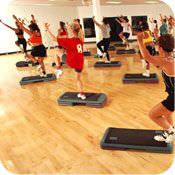
How many calories are you really burning with that video workout?
Do you ever wonder how accurate the numbers you get from exercise machines or on-line trackers are when it comes to calories burned during exercise?
You probably should, because chances are they aren’t very accurate--especially for some of the newer forms of exercise, like bootcamp programs, power yoga, kickboxing, spinning, or this new fitness sensation that's climbing up the charts right now. Unlike the old standbys such as walking, running, biking and swimming, these popular new exercise programs haven't been studied very thoroughly, so not much data is available to base estimates on. But that is beginning to change.
Read on, and find out about some recent research results you can use to give your calorie burning estimates for these activities a “reality check”...
Posted 9/30/2008 5:00:00 PM By: : 53 comments 54,285 views
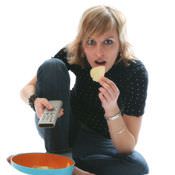
Living Alone? How's it working for you?
If you live alone, you’re not...well, alone. From 1940 to 2003, the percentage of single-person households in the United States rose by over 1000%, from 2.7% of all households to 27%. There are now more single-person households than traditional family households (two parents with children) in this country.
I’ve been living alone for about eight years now, after many years of marriage and/or parenting, and I frequently wonder whether this makes it easier or harder for me to keep my healthy lifestyle on track. It seems to do a little of both.
Posted 9/25/2008 12:00:00 PM By: : 273 comments 40,205 views

Are You a Problem Perpetuator or a Solution Finder?
When it comes to healthy eating, exercise, and developing other good habits, the biggest problem most of us have is...ourselves. Let’s face it: this stuff isn’t rocket science. You don’t need a Ph.D in nutrition or exercise physiology to know what you need to do. And if you’re not sure about something, there are plenty of ways to get the information you need.
The real challenge is actually getting yourself to do what has to be done.
One reason this can be so difficult is that we often start off on the wrong foot. Whenever we have a problem doing what we need to do, our natural inclination is to start asking ourselves why. And that almost always puts us into problem-focused mode: we start trying to identify the problem, figure out why we have it, and think about what we have to do to solve it.
That may be OK when the problem is out there in the world. If your car won't run, you need to identify the problem and fix it. But when it's your own behavior or attitude that needs changing, being in problem-focused mode often doesn’t work very well. It just makes you sink even further into the problem, like a quicksand pit.
Read on to find out why, and learn 4 tricks you can use to shift yourself into solution-focused mode.
Posted 9/23/2008 7:07:57 PM By: : 45 comments 9,328 views

Be Careful Where You Hang Out In Cyberspace
We all know that watching violence on TV or in the movies can affect how violently people act in the real world. Researchers have been studying this phenomenon for years, and based on their findings, concerned citizens have lobbied for and won such things as content rating systems and parental controls on televisions and computers to control access to certain kinds of materials.
But now there's another problem to worry about: Contagious Meanness. Check out this story on the latest research.
Posted 9/18/2008 4:48:12 PM By: : 52 comments 7,967 views

The Good Food/Bad Food Game: Is it Healthy Eating or "Orthorexia"?
Whenever you decide to change your eating habits, the issue of “good foods” versus “bad foods” is likely to come up. Whether you’re counting calories for weight loss and trying to figure out which foods offer the best nutrients per calorie deal, or trying to limit foods that could increase your risks for some health problems, or shifting to a vegetarian, vegan, or local foods diet for ethical or social reasons, you’re probably going to end up with your own personal list of foods you should eat and foods you shouldn't.
But how far down this road can you go before you start running into potential problems? For a lot of nutrition and weight management experts, the answer is “not very far.” Obviously, people with certain medical conditions will need to avoid certain foods, but otherwise, they say, categorizing foods as "good" or "bad" can create some serious problems.
In fact, some psychologists and health professionals who work with people who have eating disorders have been lobbying for a while now to add a new disorder to the list: the problem of taking the idea of eating "right" too far. This new diagnosis would be called orthorexia nervosa.
Posted 9/16/2008 11:30:16 AM By: : 75 comments 19,766 views
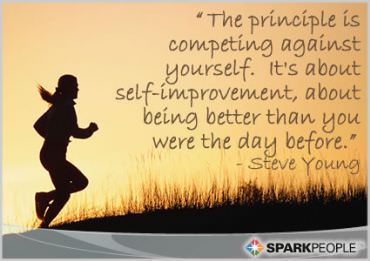
True Confessions of an Exercise Fanatic—Or—Your Chance to Play Coach and Tell the Expert What to Do
I recently came across two news stories that present some new thinking about how much exercise you might need to do for effective weight management, and how much is safe for the typical fitness buff. The first article talks about why some scientists think that it can take as much as 3-4 hours of physical activity and exercise every day to overcome the weight-gaining effects of one of the most common “obesity genes”. The second one talks about how the risks of “overtraining” tend to be exaggerated for most people who aren’t competitive athletes in training.
Both of these topics are near and dear to my own heart these days, because (a) I’m pretty sure I have this “obesity gene” that means you need to stay on your feet doing something physical for several hours per day; and (b) I do enough exercise that I need to watch out for overtraining problems, especially at my tender young age. In fact, I doubt I can be very objective about this information, so instead of playing expert here and telling you what all this probably means for you, I’m going to do the opposite.
I’m going to tell you what I think about all this from a personal perspective, and let you tell me whether I’m making sense or kidding myself.
Posted 9/11/2008 3:01:23 PM By: : 110 comments 10,047 views
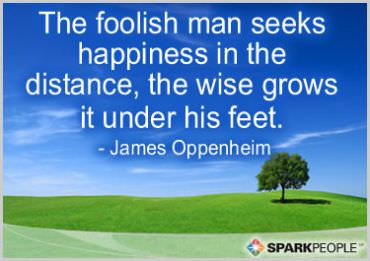
Exercise in a Bottle and Other Horror Stories...
You’ve probably noticed that, nearly every day, there’s another story in the news about some newly discovered gene or hormone or enzyme that could explain why some people get obese. Not why everyone who is obese got that way, mind you, but what might be causing part of the problem for some percentage of us. It’s fast becoming obvious that “obesity” is not one condition that’s the same for everyone—it’s a whole bunch of different conditions with a shared symptom: excess body fat.
The upside of this explosion of research and data (which has been made possible largely by the success of the Human Genome Project) is that it may lead someday to a number of effective treatments for obesity that will work much better than the one-size-fits-all approach of diet modification and exercise that most of us rely on now. It would certainly help a great deal, for example, to know exactly how your individual body is “programmed” to handle different nutrients like carbs and fat, and exactly how it uses the specific foods you eat, so that you can design a weight management plan tailored to your exact needs—maybe even before you get overweight. This capability may not be that far off in the future.
The downside of these developments is that many of these new solutions for the problem of obesity may come in the form of a pill, or a genetically modified food, or even a genetically modified human being. That’s going to raise a lot of interesting…and troubling…questions.
Which means that now might be a very good time to start thinking about how far down this road we really want to go, both as individuals and as citizens of our respective societies. Consider these two very real possibilities…
Posted 9/9/2008 11:45:00 AM By: : 119 comments 17,062 views
‹ Back Read More Entries ›




